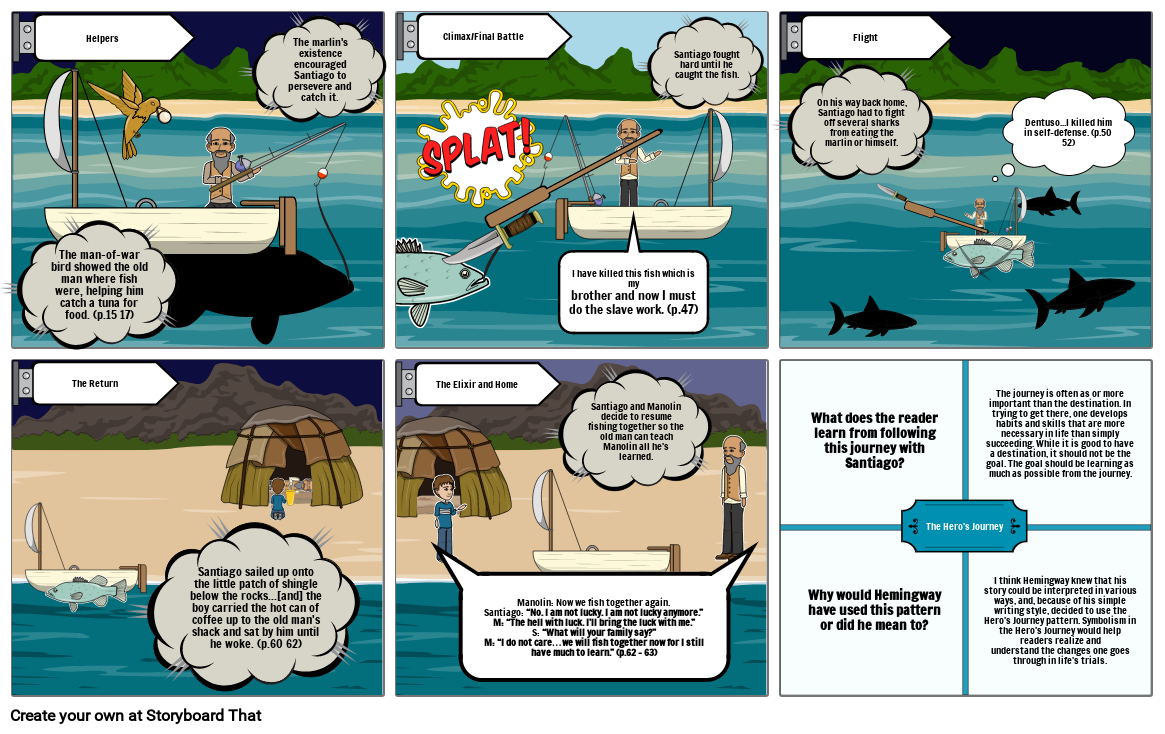العجوز

Text z Príbehu
- The man-of-war bird showed the old man where fish were, helping him catch a tuna for food. (p.15 17)
- Helpers
- The marlin's existence encouraged Santiago to persevere and catch it.
- Climax/Final Battle
- I have killed this fish which is mybrother and now I must do the slave work. (p.47)
- Santiago fought hard until he caught the fish.
- On his way back home, Santiago had to fight off several sharks from eating the marlin or himself.
- Flight
- Dentuso...I killed him in self-defense. (p.50 52)
- The Return
- Santiago sailed up onto the little patch of shingle below the rocks...[and] the boy carried the hot can of coffee up to the old man's shack and sat by him until he woke. (p.60 62)
- The Elixir and Home
- Manolin: Now we fish together again. Santiago: “No. I am not lucky. I am not lucky anymore.”M: “The hell with luck. I’ll bring the luck with me.” S: “What will your family say?”M: “I do not care…we will fish together now for I still have much to learn.” (p.62 - 63)
- Santiago and Manolin decide to resume fishing together so the old man can teach Manolin all he's learned.
- Why would Hemingway have used this pattern or did he mean to?
- What does the reader learn from following this journey withSantiago?
- The Hero's Journey
- The journey is often as or moreimportant than the destination. In trying to get there, one develops habits and skills that are morenecessary in life than simply succeeding. While it is good to have a destination, it should not be the goal. The goal should be learning as much as possible from the journey.
- I think Hemingway knew that his story could be interpreted in various ways, and, because of his simple writing style, decided to use the Hero's Journey pattern. Symbolism in the Hero's Journey would help readers realize andunderstand the changes one goes through in life's trials.
Bolo vytvorených viac ako 30 miliónov storyboardov
Na Vyskúšanie nie je Potrebné Žiadne Sťahovanie, Žiadna Kreditná Karta a Žiadne Prihlásenie!


